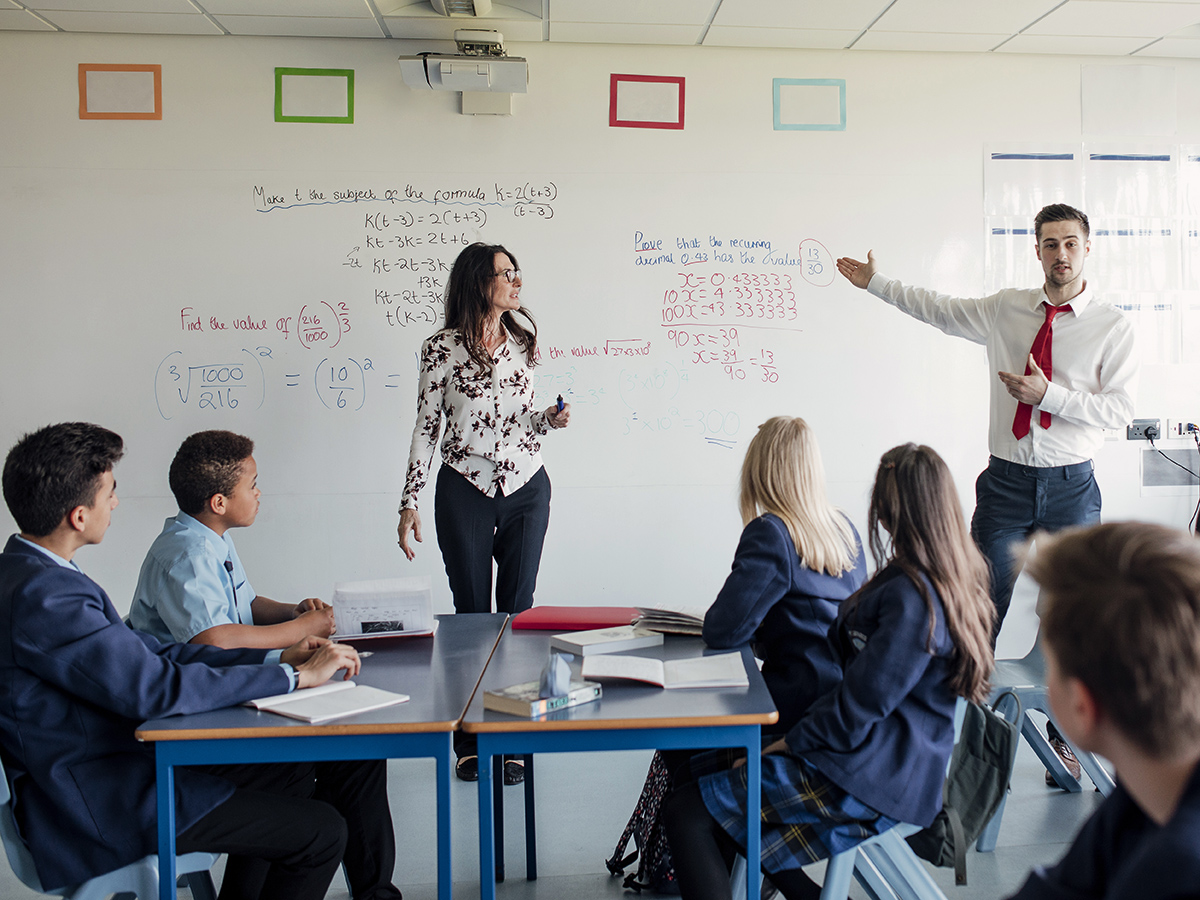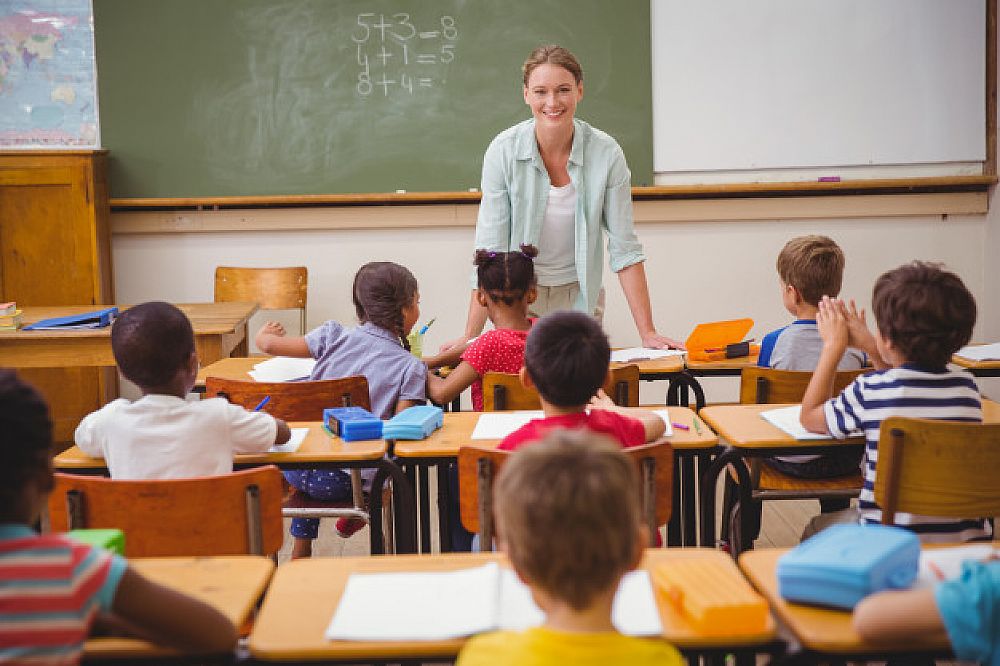Get Top Results with Primary Science Tuition Singapore from Experienced Tutors
Get Top Results with Primary Science Tuition Singapore from Experienced Tutors
Blog Article
Discover the Vital Benefits of Understanding Primary Scientific Research for Young Learners
The value of primary science education and learning for young students prolongs much past simple expertise purchase; it functions as a basic pillar in establishing important skills such as vital thinking, analytical, and creative thinking. Involving with clinical ideas with inquiry-based and interactive activities not only cultivates inquisitiveness yet likewise prepares for resilient, confident learners. As we discover these benefits even more, it becomes clear that the effects for future academic and personal growth are extensive. What details methods can teachers utilize to maximize these benefits?
Enhancing Vital Thinking Skills
Fostering important thinking abilities in young learners is essential for their cognitive development and future scholastic success. Critical reasoning enables children to evaluate details, review evidence, and make educated choices, which are vital abilities in today's information-rich culture. By taking part in clinical query, young students can enhance these skills as they check out principles via trial and error, observation, and thinking.
In key scientific research education and learning, teachers can promote critical reasoning by urging students to ask inquiries, create theories, and perform experiments. This hands-on strategy permits children to practice analytic and create logical reasoning abilities. As an example, when pupils check out the residential or commercial properties of products or the concepts of movement, they learn to analyze their searchings for seriously and draw verdicts based upon evidence.
In addition, discussions and collective jobs can promote vital reasoning by providing possibilities for learners to verbalize their thoughts, difficulty presumptions, and consider diverse viewpoints. By producing a helpful atmosphere that values inquiry and representation, educators can support crucial believing abilities that equip young students to end up being lifelong students and independent thinkers. Eventually, improving these abilities lays a robust foundation for their future scholastic undertakings and individual growth.
Fostering Inquisitiveness and Expedition

Main science education gives an organized environment where young students can check out numerous sensations via hands-on experiments and monitorings. By enabling them to communicate with materials and take part in inquiry-based learning, educators create possibilities for kids to formulate hypotheses, test their concepts, and draw verdicts. Such experiences nurture a feeling of wonder and exhilaration about scientific research.

Structure Confidence in Problem Resolving
Building self-confidence in analytical is a critical part of primary scientific research education and learning that empowers young learners to come close to difficulties with resilience and creative thinking - primary science tuition Singapore. They create necessary abilities in vital thinking and evaluation when kids are encouraged to engage with scientific principles via hands-on activities and inquiry-based knowing. This process not just boosts their understanding of scientific concepts but likewise promotes a feeling of possession over their learning
To develop my explanation self-confidence, instructors need to produce a helpful setting where blunders are deemed possibilities for development instead of failings. This encourages trainees to take dangers and explore various solutions to problems. By offering scaffolding and guidance, instructors can help pupils navigate intricate tasks, gradually boosting their freedom in problem-solving scenarios.
Furthermore, collective knowing experiences, such as team projects or experiments, can additionally improve pupils' confidence as they learn to express their thoughts and listen to others' point of views. These communications support social skills and strengthen the idea that analytical is often a cumulative undertaking. Eventually, growing self-confidence in problem-solving prepares young learners for future academic challenges and furnishes them with the devices required for long-lasting understanding.
Encouraging Creativity and Advancement
In the realm of primary scientific research education, encouraging creativity and technology is vital for cultivating a vibrant discovering atmosphere. By promoting a society where young learners can explore ideas and experiment freely, instructors assist trainees establish essential believing skills and an enthusiasm for discovery. Creative thinking in scientific research urges children to ask inquiries, design theories, and participate in hands-on tasks that promote their creative imagination.
Incorporating open-ended jobs and inquiry-based discovering right into the curriculum permits trainees to express their one-of-a-kind viewpoints and solutions. When entrusted with addressing a problem related to their atmosphere, students can brainstorm numerous methods, leading to creative outcomes that display their originality. This not just deepens their understanding of clinical concepts yet also infuses a sense of ownership over their learning procedure.
Furthermore, imaginative science education visite site and learning nurtures cooperation among peers, as trainees commonly share concepts and improve one another's insights - primary science tuition Singapore. This collaborative spirit advertises not only development but additionally necessary social abilities. Hence, by prioritizing creative thinking and technology in main science education and learning, we equip young students to think seriously, embrace challenges, and picture possibilities, laying a solid foundation for lifelong knowing and expedition
Planning For Future Understanding Challenges
Young learners' capacity to browse future understanding difficulties depends upon a strong foundation in main scientific research education and learning. This foundational understanding outfits pupils with vital thinking skills and a methodical method to analytical, necessary for tackling intricate issues in an ever-evolving globe. Primary scientific research promotes inquiry-based understanding, urging trainees to ask concerns, check out hypotheses, and engage in hands-on experiments.
As they create these skills, learners end up being proficient at examining information, acknowledging patterns, and drawing informed conclusions. Such expertises are crucial not only in clinical fields yet also in design, innovation, and math (STEM), where interdisciplinary expertise is increasingly crucial.
Furthermore, main science education and learning grows a sense of inquisitiveness and durability in young learners, enabling them to view challenges as opportunities for development. As they run into and get rid of challenges in their scientific explorations, they build confidence in their capacity to adapt and introduce.
Inevitably, a strong foundation in key science not only prepares young students for academic pursuits however additionally outfits them with the devices necessary for long-lasting knowing and adaptability in a quickly changing global landscape. By purchasing key science education, we are buying the future potential of our learners.
Conclusion
Recognizing main scientific research is crucial for young students, as it cultivates crucial reasoning, inquisitiveness, and creative thinking. Eventually, the advantages of key see here scientific research education prepare kids for future academic searches and instill long-lasting understanding behaviors vital for growing in an ever-evolving world.
The significance of key science education for young students expands far past mere knowledge acquisition; it offers as an essential column in establishing important skills such as important reasoning, analytic, and creative thinking. By producing a helpful atmosphere that values query and reflection, teachers can support critical assuming skills that encourage young learners to come to be lifelong students and independent thinkers. Hence, by focusing on imagination and innovation in key science education and learning, we equip young students to believe seriously, accept obstacles, and visualize possibilities, laying a strong foundation for long-lasting understanding and expedition.
Young students' ability to browse future understanding challenges pivots on a strong structure in main science education.Recognizing key scientific research is critical for young students, as it promotes essential reasoning, interest, and creative thinking.
Report this page